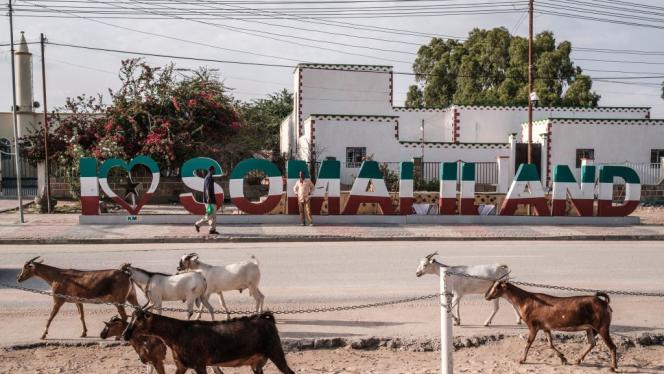Thursday 21 November 2024
The algebra of infinite clanism

During this election campaign in Somaliland, we have witnessed a troubling resurgence of political clanism and blind loyalty tied to it, posing a grave threat to Somaliland’s democratic ideals and progressive aspirations. This resurgence now risks undermining basic principles of good governance, such as the rule of law and the impartiality of the civil service, reverting to the very clanist system we once sought to move beyond.
Just a few weeks before the election campaigns began, Boqor Mohamed Osman Burmadow, a well-known and influential tribal chief—who had been in exile for several years—returned to the country, convened a tribal gathering, and declared that his clan would be voting for Abdirahman Mohamed Abdullahi (Cirro). Without question or challenge, social media was flooded with expressions of support for his declaration. This is far from an exceptional case. Since the election agreements were finalised and the voting date announced, every clan and sub-clan has begun collectively endorsing specific candidates or parties. The merits of the platforms they stand on or the policy mix they present are entirely irrelevant. Even Muse Bihi, the president, could not answer a question about what made him different as a candidate from the opposition leader, Cirro, in a recent interview with BBC Somali. One writer likened the interview to Eritrean president Isaias Afwerki’s legendary “what elections!?” moment on Al Jazeera.
Since the election agreements were finalised and the voting date announced, every clan and sub-clan has begun collectively endorsing specific candidates or parties. The merits of the platforms they stand on or the policy mix they present are entirely irrelevant.
Somali intellectuals have referred to this issue as “political clanism”, where political demands are formed and articulated through clan affiliations rather than, for example, through an organised political party. Nuruddin Farah has called this the “fetishisation of the clan”. In this context, ideas and the type of vision a politician has for society as a whole do not drive politics; instead, it becomes a battle between clans for public and other resources.
For what it’s worth, Cirro and Bihi do have some differences, particularly regarding foreign policy. Muse Bihi wants a memorandum of understanding with Ethiopia to be implemented, which would involve Somaliland giving away or leasing a portion of its coastline in exchange for recognition. Bihi has also invested heavily in strengthening ties with Taiwan, much to Beijing’s ire. On both of these issues, Cirro has advised that greater caution may be warranted.
But very few are making their assessments of who they will vote for based on which of these leading politicians is likely to bring the greatest benefit to Somaliland.
These clan endorsements, which have dominated election discourse, lack any semblance of the reasoned, discussion-based political decision-making that is integral to democratic culture. It is a blunt and blind declaration of collective allegiance. This represents a dogmatic and unthinking loyalty that is pulling us further from the democratic ideals we have so earnestly pursued. In the truest sense, it is a hijacking and exploitation of our shared identity by clan “elders” and political elites, who manipulate clan identity to shape politics in favour of their own perceived group interests. The group gains expression in the person of the chief, and so what benefits him is erroneously assumed to benefit the rest.
These clan endorsements, which have dominated election discourse, lack any semblance of the reasoned, discussion-based political decision-making that is integral to democratic culture.
This notion of collective clan endorsement suggests that Somaliland may have little interest in becoming a democratic society where meritocracy and public support prevail. When we, as a community, align our politics with the clan or lineage to which we belong, we risk fostering a form of cultural bigotry that instinctively views those outside our perceived clan as “the other”. This mindset has permeated contemporary language, particularly in the lead-up to election campaigns, normalising division and clan-driven politics. Terms like “cadawga gudaha” — translates as “the enemy within” — have been used as rallying cries. Other polarising terms, such as heego and huwan, have also emerged, carrying loaded political connotations that subtly reinforce these divisions.
Since its unilateral declaration of independence, Somaliland’s democratic progress has been largely praised by the international community. Somaliland has successfully held several presidential, parliamentary, and local council elections, all of which have seen relatively peaceful transitions of power without major disruptions. Through this nascent democratic process, Somaliland has achieved two significant milestones: building functional institutions that guarantee and maintain fragile peace in a volatile region and, to some extent, gaining recognition as a “beacon of democracy” in the region.
Today, however, these achievements are under grave threat, and our celebrated democratic story is in decline. More than ever, the fragile institutions we have built face serious challenges.
Take, for example, how our civil service — one of Somaliland's foundational institutions — is being exploited by the very bureaucrats we entrusted with the responsibility to keep these institutions free from political interference, remain impartial, and ensure that such critical institutions do not fall prey to political misuse.
Recently, Khalid Jama, the chair of the Civil Service Commission issued a statement warning civil servants not to participate in political campaigns. “Any breach of [the law] will result in disciplinary action,” his statement read. Yet, just a day later, he broke the law himself, appearing on television, campaigning for the ruling party, urging people to vote for the incumbent president. “Come back again, father,” the chairman was seen chanting in a rally in reference to the current president. This increases distrust in state institutions among the opposition and their supporters.
We have also recently witnessed a rise in violence on the streets of the capital, as the campaign tensions reach new heights. A series of disturbing videos has surfaced online, capturing scenes of supporters from various political factions—most notably those aligned with the ruling Kulmiye party led by the incumbent president—marching through the city.
In one particularly striking video, a group of civilians, some heavily armed and openly carrying rifles, was seen roaming through neighbourhoods known to be opposition strongholds. Locals who spoke with the media described an atmosphere thick with intimidation, calling these actions a deliberate “show of force” meant to harass residents by the ruling party supporters.
After declaring unilateral independence in 1991, Somaliland embarked on building a system of government grounded in democratic principles. As the Somali historian Abdurahman Abdullahi Baadiyow observed, both the Somali Youth League period in the relatively liberal 1960s and Siad Barre’s socialist military regime from 1969 to 1991 failed in “weakening clanism and strengthening nationalism”. Somaliland was an opportunity for a fresh beginning aiming to create a political framework that allowed citizens to participate freely and equally.
This political shift, at least in theory, sought to move beyond the traditional clan structures that had long dominated Somali politics and to prevent authoritarian rule.
In the service of building this new society, Somaliland sought to distance itself from issues that had troubled postcolonial Somali state formation: centralised authority, clan-capture of institutions, and the pursuit of Great Somalia, the unification of all Somali peoples into one state.
The people of Somaliland reached a consensus on these challenges: centralisation had historically concentrated power among select clans, excluding others, while clan dominance had weakened governance. They agreed that democracy was the way forward. “We are building a system in our country known as democracy, globally recognized as the only system that allows people to live with complete freedom and self-governance. This system requires that the freedom it promises is not misused or exploited by those in power,” declared Mohamed Ibrahim Egal, the former Prime Minister of Somalia who later became the second President of Somaliland. “The only way to achieve this is by having a vigilant public that knows its rights and respects the constitution and the rule of law.”
In light of this, a key aspect of Somaliland's nation-building strategy involved re-establishing its colonial borders to create a more cohesive state. In addition to reclaiming political agency for the northern regions, working on a smaller scale was believed to make it easier to “share the pie,” as it were, when it came to political power. This framework envisioned a more inclusive model of governance that brought power closer to the communities it was intended to serve. Through these steps, Somaliland aimed to distinguish itself as a stable and democratic “state” in an otherwise turbulent and authoritarian region.
In addition to reclaiming political agency for the northern regions, working on a smaller scale was believed to make it easier to “share the pie,” as it were, when it came to political power.
Now, thirty years on, we must reflect: how close are we to having a society which reflects the principles we once held dear? Are we moving in that direction, or have we gone adrift?
These are the questions we must ask as we reassess our commitment to the democratic vision we established for ourselves three decades ago.
In reflecting on what the Samatar brothers describe as the “Somali catastrophe,” they criticised the unstable, clan-based structure of Somali society. “Tribalistic ideology has become like the proverbial layers of an onion—as internal divisions and conflicts emerged, peeling away each genealogical layer became a habitual practice,” they wrote in Bildhaan journal. Just as each layer of an onion reveals another beneath it, so does each tribal division expose further internal splits, perpetuating an unending centrifugal tendency.
While marshalling clans may be politically expedient in the short term for mobilising people, in the long term it harms social cohesion and creates a society unable to think or speak in terms that promote the common good or sustain trust, as the Samatars warned years ago.
Today, Somaliland faces institutionalised and unchecked clanism that undermines and, disturbingly, threatens to undo the limited democratic achievements the country has made. Questioning the unholy alliance between our perceived democracy and entrenched tribalism may seem ill-timed, but it is necessary. Currently, campaigns are at their peak, and nothing can be heard amidst the banging chorus of clan and political rhetoric. Nevertheless, it is essential—perhaps a duty to our community—to examine the damage this unholy alliance inflicts on our aspirations for a just, progressive society rooted in the supremacy of democracy over clanism. If we are to realise the democratic vision we once embraced, we must critically re-evaluate our commitment to a political system based on merit and integrity, where every individual’s voice weighs more than the rowdy, disruptive, and destructive noise of collective clan dogmatism, and each leader is chosen for their merit, not their clan affiliation.










